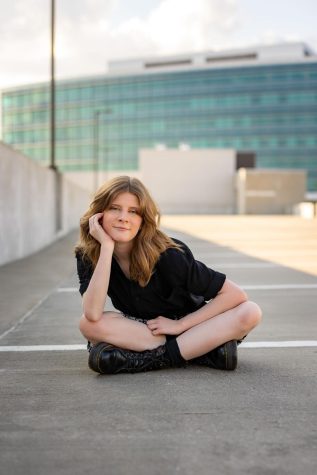A not-so ‘chronically online’ take on social media
Dec 23, 2021
I’m sure by this point the general public understands and potentially fears the rapid rate at which technology is advancing in our lives. People are constantly reminded of the importance of taking a break from the screen and interacting with the people we know in person. Unfortunately, with the never seeming to leave elephant-in-the-room, many of us weren’t able to be with our loved ones in person for many months and were left with not a lot to do but stay mindlessly entertained with television, movies, and social media. Spending day in and day out on our phones, at least for some, has created a unique and scary kind of relationship with the average Joe and a celebrity they see every day on Instagram, a one-sided relation- ship specifically defined as being parasocial.
A parasocial relationship is essentially a relationship between a person who exerts large amounts of time and emotional energy to an- other person that is completely oblivious of the other person’s existence. These relationships are most common between people and celebrities, television stars, and other content creators.
“Fangirl” behavior is nothing new and has existed ever since stars have been a thing. Being a part of a fandom and becoming attached to a piece of media is fine in moderation. There is a way to balance your relationship between you and the media you consume, and in some ways, it is healthy to build connections through content creators like TikTok stars and YouTubers. They may provide a sense of comfort to you in times of trouble. However, it is also necessary to know where to draw the line in that bond you established with them.
It becomes an issue when the individual becomes too attached to a false idea of that famous person. Daydreaming and placing yourself into unrealistic scenarios with a person you don’t know is a risky habit that can cause a teenager’s emotional health to plummet. Placing celebrities on a pedestal, or attaching yourself to an idea of a person that doesn’t exist will only leave you disappointed.
It is understandably a cycle I see a lot of teenagers online stuck in. Celebrities and other people you consistently see online start to feel like friends. You may start to identify with a character they play. You may start to think you know the person from interviews, which then leads to becoming more obsessive and wanting to know every detail about their life. It can become exhausting and has only become this exhaustive due to the creation of social media. We are no longer limited to a celebrity’s TV persona, and can now see a more intimate side of them through hundreds of media outlets. Vulnerable teenagers realizing that the people they idolize and build false narratives about actually have no idea who that person is behind closed doors is undeniably a difficult pill to swallow.
Social media culture and especially unverified gossip have an incredibly unnecessary hold on people. Every day you see someone online lose their mind over new information about an actor that may or may not even be true. With people being able to constantly look and refresh every social media platform to get pop culture news immediately, they begin to prioritize it over anything else.
In the end, you should view people in the public eye as an entertainment outlet, not a friend. It not only places higher expectations on people that make just as many mistakes as you do but can create an unequal bond between you and a human being that will only leave you hurt. It is a harsh reality that a lot of chronically online people do not want to face, but it really is for the better of your health to find a healthy balance between online relationships and relationships with the people around you.

